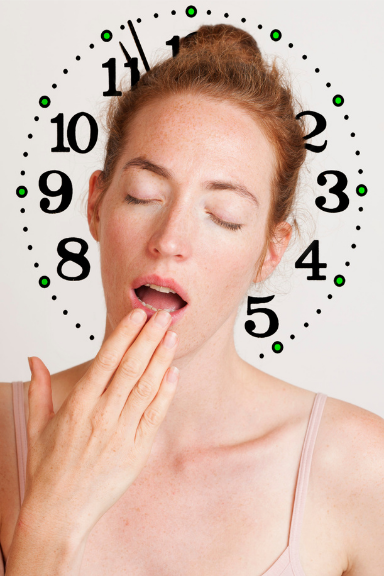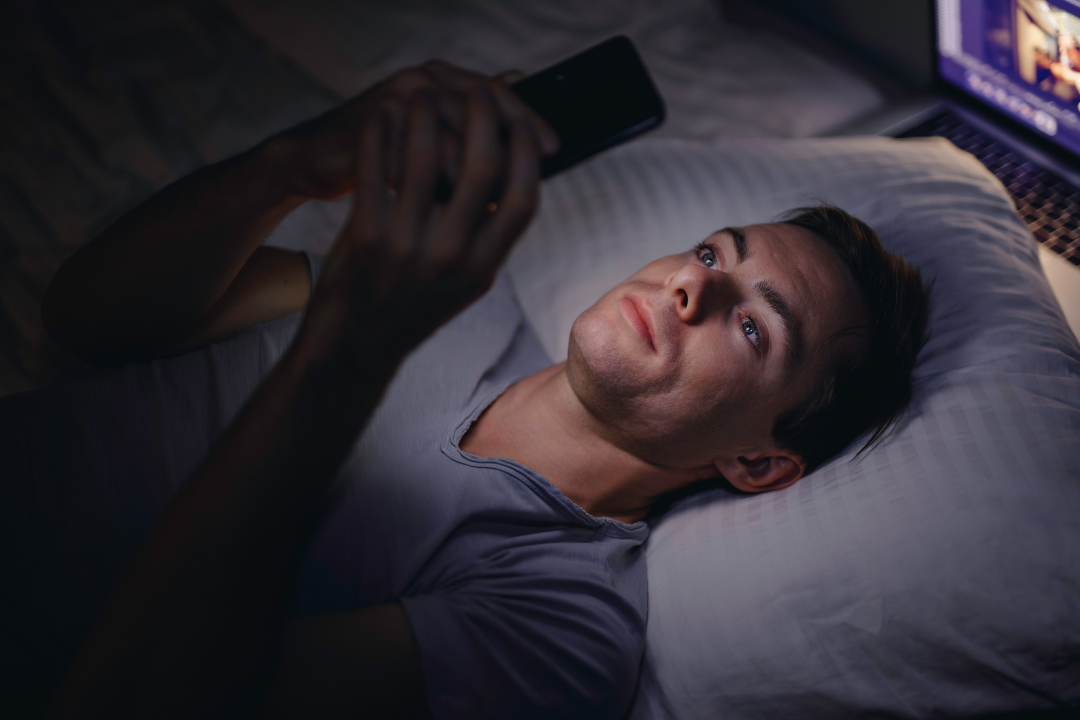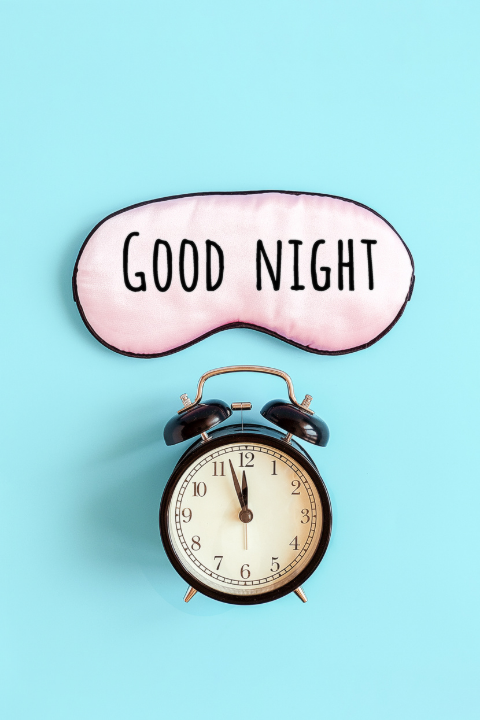 Every single person has a biological clock called their circadian rhythm. It’s also known as the “24-hour clock” or “sleep-wake cycle” and is generally controlled by a part of the brain that responds to light and dark stimuli (a group of cells called the suprachiasmatic nucleus).
Every single person has a biological clock called their circadian rhythm. It’s also known as the “24-hour clock” or “sleep-wake cycle” and is generally controlled by a part of the brain that responds to light and dark stimuli (a group of cells called the suprachiasmatic nucleus).
It is one of four types of biological clocks we all have:
Circadian rhythms — the 24-hour cycle that includes physiological and behavioral rhythms like sleeping.
Diurnal rhythms — processes of the circadian rhythm that only occur during day and/or night.
Ultradian rhythms — biological rhythms with a shorter period and higher frequency than circadian rhythms, like heart rate, thermoregulation, and appetite.
Infradian rhythms — biological rhythms that last more than 24 hours, such as a menstrual cycle.
Today, we will be focusing on the circadian rhythm, because throwing it off can have a great impact on your sleep and subsequently your overall health.
In fact, sleep deprivation can be harmful to essentially every aspect of your body. Having one night’s worth of poor sleep can leave you groggy and irritable the following day, but can be easily fixed with a better sleep the next night. However, routinely sleeping poorly can have serious consequences.
Long-term sleep deprivation can cause…
 Cognitive issues — things like memory loss or the inability to concentrate are common with sleep deprivation. This goes for both short- and long-term memory loss.
Cognitive issues — things like memory loss or the inability to concentrate are common with sleep deprivation. This goes for both short- and long-term memory loss.
Accidents — when you’re not well rested, you have a slower reaction time and are less observant, increasing the chances of making mistakes or having some sort of accident.
Mood changes — improper sleep can cause you to feel irritable, unmotivated, or experience general mood swings.
Stress — being tired all of the time can make you much more prone to stress and poor stress management.
Heart problems — fatigue puts strain on your heart, which can lead to an array of heart complications in the short- and long-term.
Higher risk of health issues — poor sleep not only puts strain on your heart, but almost every organ. This can negatively impact your bodily functions, greatly increasing the risk of health problems.
Weight gain — research has shown a clear connection between lack of sleep and unwanted weight gain.
Poor libido — not getting enough sleep has also been linked to lower sex drive and poor sexual performance.
Poor balance — lack of sleep affects your balance and coordination, making you more prone to clumsiness and accidents.
As you can see, keeping yourself well rested is extremely important. You shouldn’t let it fall by the wayside, or keep it low on the priority list (even if that TV show you’re binging is really good!).
If you’re having trouble getting to sleep, staying asleep, or you just don’t think you’re getting a quality sleep — it could have to do with your circadian rhythm. Not only that, an out-of-sync circadian rhythm could keep you feeling tired throughout the day, even when you shouldn’t.
This is why we want to go over six things that may be impacting your circadian rhythm, and how to get yourself back on track!
Here are six things that you can do TODAY to help align your circadian rhythm:
1. Make a sleep schedule and stick to it
This is one of the best ways to get your circadian rhythm under control. Set a bedtime and follow it. Of course, things can come up, but if you do your best to be in bed at around the same time, while waking up at the same time, your body will take note.
 2. Be mindful of melatonin
2. Be mindful of melatonin
If you’re taking melatonin to get to sleep at night, this could help you reset your cycle along with your new bedtime routine. But it’s important to note that the body creates melatonin on its own. Melatonin is a hormone released by the pineal gland in response to darkness.
If you’re taking a large dose, there’s also a chance you may feel groggy the following day — regardless of how well you slept. It may be worth trying to skip the melatonin for a few nights, and making your bedroom dark instead to trigger your body to create its own melatonin.
3. Limit stimuli
When you settle into bed — and preferably for about half an hour beforehand — do your best to avoid bright lights or screens, like the computer or your phone. Make it dim and calming in the bedroom, and consider reading a paperback to let your mind and body relax before turning off the lamp.
5. Exercise early in the day
It’s different for everyone, but for some of us, exercising too late in the day can confuse our internal clock, and make it more difficult to settle in for the night once we hit the hay. And if you’re not regularly exercising, give it a try. It can help you get a better sleep at night.
 6. Avoid certain habits in the evening
6. Avoid certain habits in the evening
Consuming caffeine, alcohol, or cigarettes are all things that can impact your circadian rhythm and make it more difficult to have a good sleep. Avoid eating too late, as your metabolism can also confuse your rhythm. Also, eating healthy in general can help you achieve better rest at night.
7. Get some sunlight
They say it’s best to get some direct sunlight on your body within half an hour of waking up. Just like how darkness triggers melatonin to be released, light can trigger cortisol to be released and make you more alert.
If you live somewhere that doesn’t often have the sun shining, try bright light therapy. This is intentionally spending some time in the morning around a bright light, signalling to your body that it’s time to become alert and awake for the day.
As you can see, all it takes is some changes in your routine, and you could be sleeping better than ever before. Of course, there are things that can make this more difficult. If you work midnights or other shift work, or travel a lot, it can make finding a routine next to impossible. But following the steps you can — such as minimizing certain habits when nearing bedtime, or not being on your phone in bed, you can still make a difference!
Did you know that B12 may have a positive effect on the circadian rhythm?
Several studies have looked at B12 and the circadian rhythm. They have shown that B12 has an impact on how the body responds to certain responses in relation to the circadian rhythm.
For example, increased B12 levels have shown an increased response to light in the morning, allowing the subject to feel more alert, as well as an increase in melatonin release at bedtime.
B12 could be a great tool in your toolkit if you’re looking to reset your sleeping schedule. But if you’re having trouble sleeping because of low B12 levels, what else are you missing out on?
B12 deficiency can have plenty of negative effects on your health…

